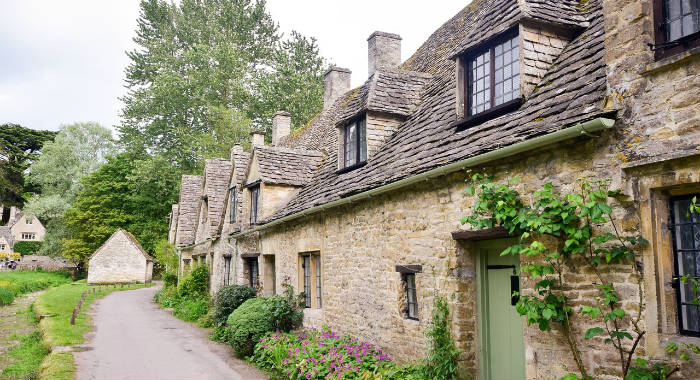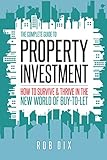If you are considering buying a holiday home as an investment, there are a number of things you’ll need to know before you make a decision.
For starters, you’ll need to know whether a holiday house is likely to be profitable for you in the long term or not.
You’ll also need to know the ins and outs of mortgages and taxation to ensure you get everything in order.
With that in mind, let’s take a closer look at what you need to know when buying a holiday home as an investment.
Benefits Of Buying A Holiday Home As An Investment
As the internet has made it easier to find and book reliable self-catering holiday accommodation, holiday lets have become an increasingly popular option among investors.
There are a number of reasons for this, including:
Return On Investment
It’s said that a good holiday home in the right location can earn an investor as much as three times what they would earn on a standard buy-to-let property.
That’s because the short duration of stays means you can charge a premium on the rental costs. Providing you can keep the property booked up, the cash flows in relentlessly.
Tax Relief
Although the tax rules are changing all the time and second homes are now viewed with some level of disdain, Furnished Holiday Lettings (FHLs) are still pretty favourable to investors.
The key tax benefits of FHLs are:
- You can claim Capital Gains Tax reliefs for traders (Business Asset Rollover and Entrepreneurs’ Relief, plus relief for gifts of business assets and for loans to traders)
- You are entitled to plant and machinery capital allowances for items such as furniture, equipment and fixtures
- The profits count as earnings for pension purposes
You can read more about the tax on holiday lets on the Governments website.
Cheaper Holidays!
Of course, one great thing about owning a holiday home investment is that it also gives you a place to go on holiday too!
Just keep in mind that staying there isn’t free as you’ll be preventing someone else staying there who will pay for the privilege.
Our Favourite Books On Property Investing:
Disadvantages Of Holiday Homes As Investments

Naturally, if buying a holiday home as an investment was all benefits and no drawbacks, every investor in the country would be doing it.
So, what are the negatives that put some people off owning a holiday house?
Seasonality
Holiday homes are very much a seasonal endeavour. While it depends on the type and location of the holiday let, typically occupancy rates will peak during summer and around Christmas and New Year.
That means while there are times where money is flowing in constantly, there are also times when the property will be stood empty for weeks.
Insecure Income
Whereas with a standard buy-to-let property you will usually have a minimum term for the tenancy agreement, with holiday lettings you are only as good as your next booking.
That means you cannot plan too far ahead and cash flow can become tricky during less popular months.
Extra Work
Wile a standard buy-to-let will need you to make occasional repairs and makeovers of the property, a holiday let requires almost constant attention.
Any repairs will need making almost instantly to avoid creating a bad experience for the next holidaymaker. Plus, there is, of course, the cleaning and changing of bed linen after every visitor.
Given stays can be as short as a couple of nights, that can soon mount up to a lot of work.
To combat this, many holiday home investors outsource the daily management of the property to holiday home management company. This frees up your time but will impact your profitability.
Extremely Competitive
Unlike normal residential buy-to-let properties where if you get a nice property in the right location, finding a tenant should be relatively pain-free, holiday lettings are extremely competitive.
Making a holiday home successful requires more than simply making it look nice and listing it on a popular holiday home portal.
You’ll need to always listen to your guests and constantly improve your offering, you’ll need to encourage them to leave you positive reviews, and you’ll have to think of innovative ways to make your property stand out in popular areas.
What To Look For In A Holiday Home
When we go on holiday, we tend to look for very different things in our accommodation to what we look for when buying our main home.
Being on holiday means we value the luxury things more, and the practical things less. And that means you need to prepare to spoil your guests.
Here are some of the most important features guests look for in a holiday home:
Hot Tub

Hot tubs seem to be all the rage at the moment. Although there are an increasing number of people installing them at home, they are still very much a luxury item.
And that means that when people go away, it’s often one of the first things they check for when viewing potential places to stay.
As they can be used all year round, they are great at helping to attract more bookings out of peak season.
Stunning Views
In our built-up cities and towns, most people live in properties that overlook other properties or buildings. And that means when we go away, we put a lot of value on the view from the accommodation.
If your holiday home is by the coast, a sea view will push up both bookings and the amount you can charge per stay. A more rural location will need views of rolling hills or pretty churches to help make it more popular.
Dog-Friendly
As a nation of pet lovers, properties that are dog-friendly will appeal to a much wider range of holidaymakers than those that are not.
For dog owners, that’s one of the key reasons for holidaying in the UK – that your dog can come with you, thereby avoiding costly kennel fees.
Just remember that being dog-friendly isn’t about just allowing dogs to stay at your property. Think about where the dog can be bathed after a muddy walk and where it can sleep at night.
Swimming Pool
While the costs and upkeep required for a swimming pool at home will put many people off buying a property with a pool, it’s very different when we look at holiday homes.
Nothing beats having a relaxing swim while holidaying and so homes with this facility are often preferred by holidaymakers over those without.
Open Fire
If your home is always popular in summer but struggles to reach high levels of occupancy during cooler months, an open fire could be the game-changer.
It turns a cold, soulless place into a warm and cosy property full of romance. Make sure your holiday let has an open fire if you want to attract guests all year round.
Where Is The Best Place To Buy A Holiday Home In The UK?
Just as there are some places for buying normal investment properties that are better than others, location is also vital for holiday homes.
Here are some things to consider:
Countryside or Coast

There is something about being by the sea that appeals to many people. Whether it’s the relaxing swish-swash of the waves or the completely uninterrupted views it doesn’t matter, we are an island nation with a love for the coast.
That means coastal properties are always high in demand. But, don’t rule out more rural locations. National Parks such as the Lake District and the Peak District remain extremely popular with walkers and other ‘outdoorsy’ types.
Even holiday homes outside of the National Parks but close to popular walking routes are likely to be in demand throughout the year.
Near To Attractions
If you want your holiday home to be a popular retreat, being close to well-known attractions is a big plus point.
There’s the obvious one such as National Parks but think also about other attractions such as theme parks.
Ideally, there will be multiple attractions in the vicinity of your holiday home to attract as broad a range of people as possible and ensure they need a place to stay for multiple days out.
Up And Coming Areas
Just like buying any type of property, up and coming areas often provide the best long-term return on investment.
So, look for places that are quickly becoming tourist hotspots.
Some places even become hotspots virtually overnight. Several places in Northern Ireland have becomes extremely popular with tourists after being used as the set for TV sensation, Game of Thrones.
Of course, such popularity may only be short-lived but it doesn’t mean they aren’t worth pursuing, even if just in the short-term.
Most Popular Locations:
In terms of the best locations for holiday homes, according to Direct Line, the places with the high percentage of holiday homes in the UK are:
- Cornwall
- Gwynedd (home to Snowdonia)
- North Norfolk
- South Lakeland
- East Lindsey
This doesn’t necessarily mean they are the best places to own a holiday home but clearly, something must be working. However, if you choose a holiday home in one of these locations, be prepared for extremely high competition!
Buy To Holiday Let Mortgages – How Do They Work?
If you need a mortgage to buy a holiday home, keep in mind that you cannot use any old buy-to-let mortgage. Buy-to-let mortgages usually have a condition that says they can only be used to let the property on an assured shorthold tenancy.
That means the tenant has to sign a contract committing to stay at the property for a minimum number of months. Clearly, this wouldn’t work for a holiday let where guests often only wish to stay for a few days at a time.
That means you’ll need to acquire a dedicated buy to holiday let mortgage.
Such mortgages are specifically designed for the holiday lettings market and therefore use different criteria to judge eligibility.
What Is The Typical Holiday Let Mortgage Criteria?
Although lenders do vary, the typical holiday let mortgage criteria is assessed by the lender looking at the rental income the property has achieved historically.
This of course only applies when mortgaging a property that has been used as a holiday let for a period of time.
If it has never previously been used as a holiday let, the lender will ask a local holiday letting agent for their opinion on the expected income of the property as a holiday let.
In general, the lender will be checking to ensure your expected rental income exceeds the mortgage interest payments by at least 25%.
You’ll also need to be earning at least £20,000 – £40,000 from other means and many will ask that you also own your own home.
Buying A Holiday Home As An Investment – Summary
As you can see, there are a number of things to consider when thinking about buying a holiday home as an investment.
Ultimately, there are plenty of up-sides that mean it’s worth the few negatives that come with owning a holiday let.
However, they are not for everyone, particularly those who like a more steady income that can be achieved without too much effort.
If you do decide to buy a holiday house as an investment, be sure to check local auction houses to try and pick up a bargain.







